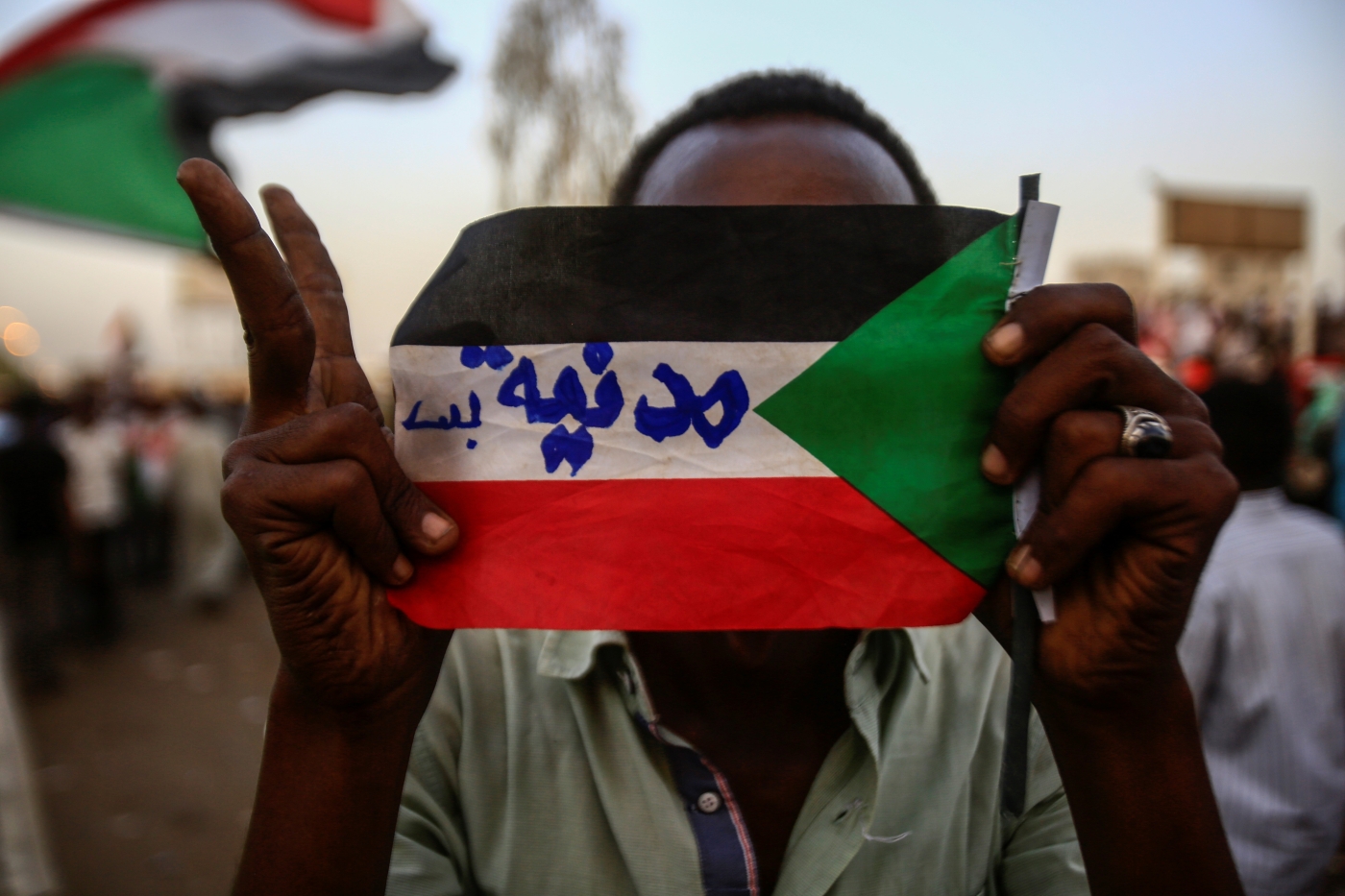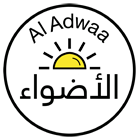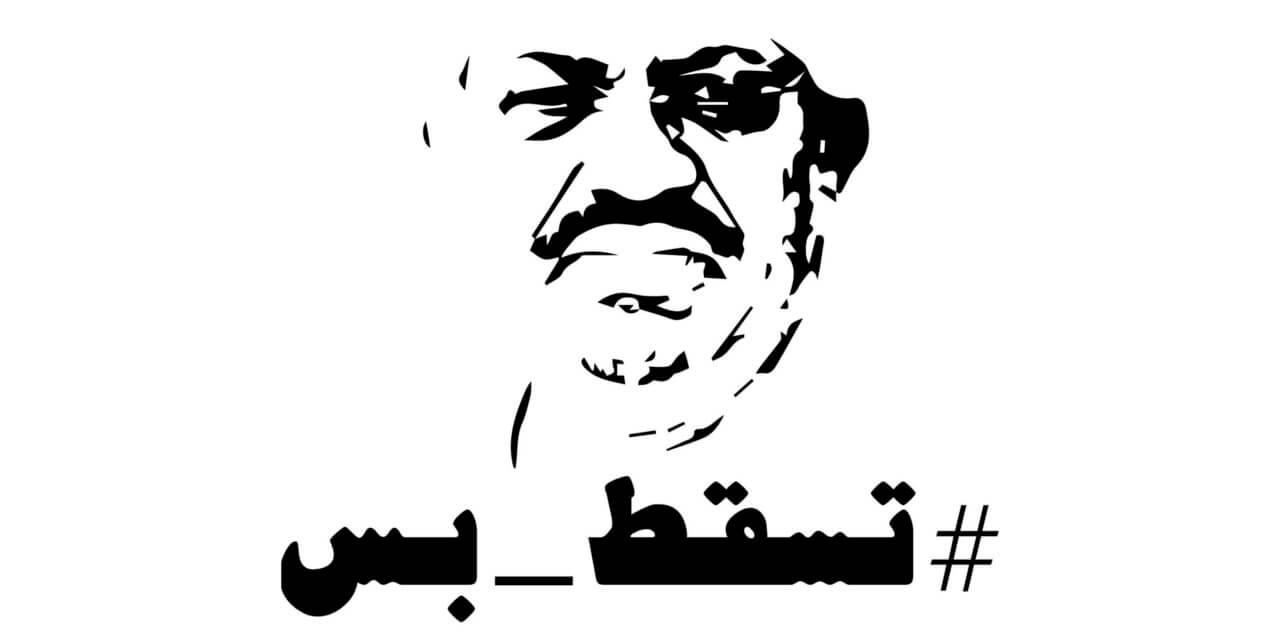‘Tasgut bas‘ (just fall), the slogan of the Sudanese revolution. © Mohamed Gamal
‘Tasgut bas‘ (just fall) was the most famous slogan of the Sudanese revolution. Hassan Faroug provides a recap of some of the slogans used by the Sudanese people in their protest against Omar al-Bashir, who was toppled on April 11, 2019.
‘Just fall’
A slogan of only two words ‘tasgut bas’ meaning ‘just fall’ was the most common chant calling for the removal of Omar al-Bashir’s decades-old leadership.
The slogan was present throughout the months of the uprising, reflecting the protestors’ fundamental demand which was realised on April 11, 2019, when General Awad Ibn Awad, Chairman of the Transitional Military Council (TMC), announced the overthrow of ousted President Omar al-Bashir.
‘It hasn’t fallen yet’
However, the Sudanese people returned to the vicinity of the Sudanese Army General Command with a new slogan: ‘Lam tasgut baad’ meaning ‘it hasn’t fallen yet’, expressing people’s rejection of the statement issued by the Chairman of the Transitional Military Council, which insinuated bargaining and compromises to keep the National Congress Party (NCP) in power and only allow the head of the regime, Omar al-Bashir, to fall.
The slogan ‘lam tasgut baad’ also embodied their rejection of General Awad Ibn Awad taking over the leadership of the transitional phase, as they considered him as part of the former regime.
Hours after his statement announcing Bashir’s removal, Awad issued another statement announcing that he was stepping down from the chairmanship of the Transitional Military Council.
‘Freedom, peace, justice! Civilian rule is the choice of the people’
As people returned to the sit-in site in front of the Sudanese Army General Command, chanting ‘it hasn’t fallen yet’, another slogan emerged, demanding a civilian government and expressing their rejection of the presence of the army in the transitional period.
From the sit-in site, the thunderous slogan ‘Freedom, peace, justice! Civilian rule is the choice of the people’ echoed day in and day out, airing people’s insistence on the demands of the revolution.
People’s awareness of the inevitability of change and the necessity of uprooting the regime that had ruled and wreaked havoc for over 30 years was in the making for long.
Protesters remained at the headquarters and continued their call for a civilian-led government, saying that while al-Bashir may have been removed, his regime was still in place.
The sit-in lasted for two months until it was violently dispersed by the Rapid Support Forces (RSF) paramilitary group, led by TMC deputy head Mohamed Hamdan Dagalo.

‘Atbara rose, Atbara rose, we are out [in protest]’
Slogans reflected the different stages of the revolution. Going back to its beginnings, the city of Atbara known for its struggle against the colonialist and dictatorial governments played an important role.
Atbara is the city of workers and iron and fire. With the spark of December 19, coming from Atbara, the slogan used in several cities and in Atbara itself was: ‘Atbara rose, Atbara rose, we are out’, meaning that the sun of Atbara has risen and its light is spreading.
This slogan highlighted the importance of this initial revolutionary spark from Atbara. Later on in the uprising, already after Bashir’s fall, a large number of protestors came by train from Atbara to support the sit-in in front of the Sudanese Army General Command.
‘You arrogant racist, we are all Darfur!’
The slogans of the revolution also highlighted the everyday reality, crises and profound problems the Sudanese faced. When the protestors chanted the ‘You arrogant racist, we are all Darfur!’, they meant to send a message to the regime and the intelligence chief Salah Gosh, who accused students from Darfur of being members of the Abdul Wahid Nur Movement and of planning sabotage operations.
This slogan was also used in Khartoum, when thousands of demonstrators gathered on January 2, 2020, to condemn the el-Geneina massacre in West Darfur. Clashes in el-Geneina resulted in dozens of deaths and injuries, and thousands of people were displaced. Most of them headed to the Chad-Sudan border seeking shelter and safety.
The Forces of Freedom and Change alliance (FFC) accused members of the former regime of being behind the violence and demanded the transitional government to dismiss the West Darfur military ruler and to appoint a civilian one.
‘My grandfather is Taharqa, and my grandmother is Kandaka’
Slogans also referred to Sudan’s ancient history. The ‘My grandfather is Taharqa, and my grandmother is Kandaka’ slogan, for example, meant to remind people that they are descendants of the kings and queens of the Kush Kingdom.
Taharqa is one of the Kush kings who was known for his courage and his strategic and military capabilities. Kandake was the title of ruling queens in the Kingdom of Kush.
These strong, courageous and resilient ancient leaders provided inspirational characteristics for the protestors. They drew their strength and patience from the spirit of the kings and queens of the Kush Kingdom.
But, this slogan also reflects another aspiration of Sudan’s revolution: equality between women and men. The Kandaka queens ruled Sudan and were as skilful and strong as kings.
The Sudanese women, along with men, have led Sudan’s latest revolution. Through their choice of slogans, the Sudanese people have drawn a future for their country, a future of freedom, peace, justice and equality, all provided by a civilian government.

